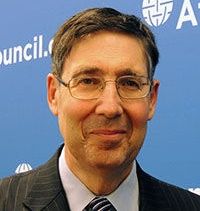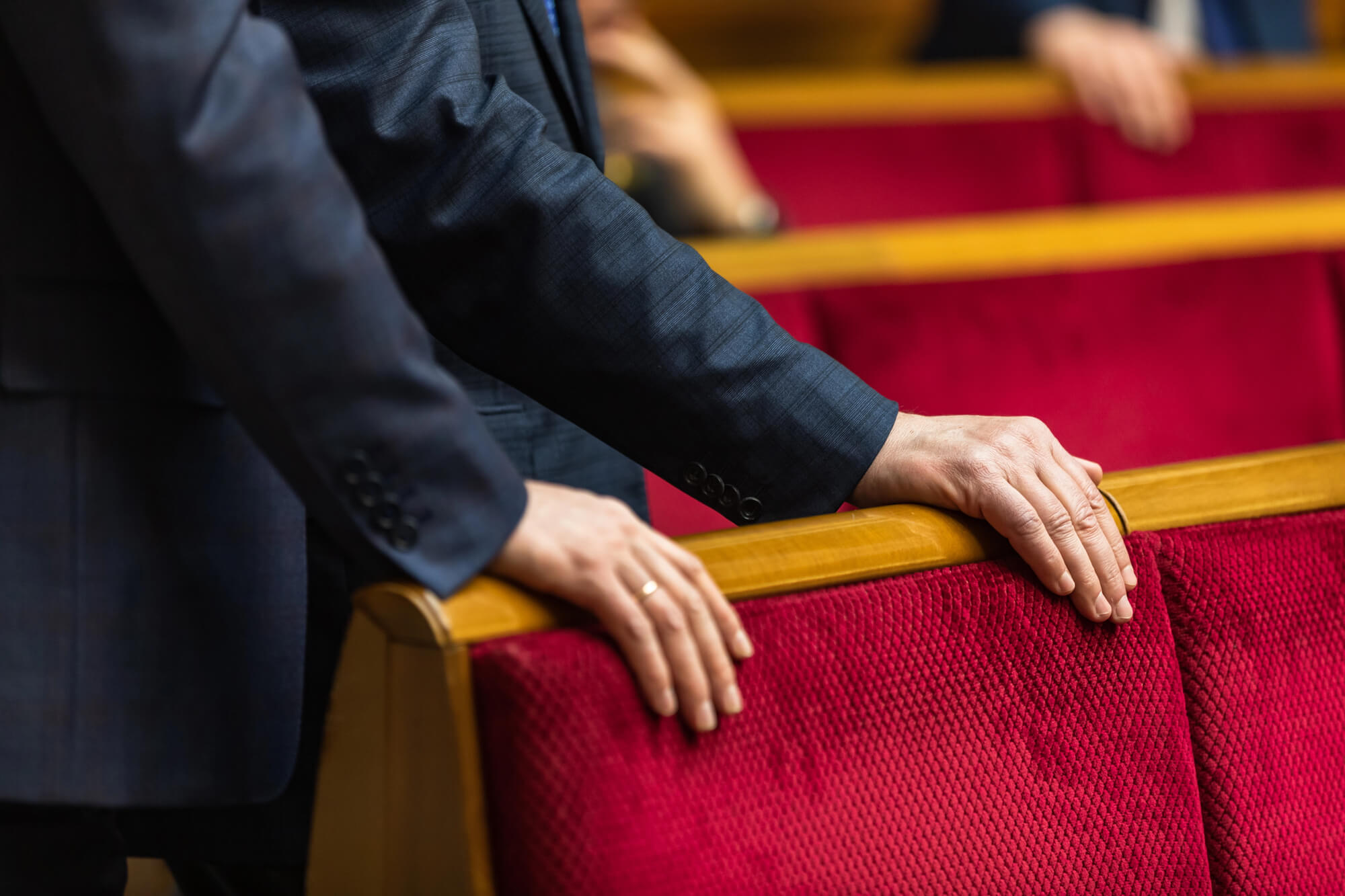At the “Anti-corruption” panel of Symposium “Ukraine: Escape from Post-Soviet Legacy” held on April 24-26th, John Herbst, a former US ambassador to Ukraine, and now a head of the Dinu Patriciu Eurasia Center at the Atlantic Council, an influential think tank, talked about corruption in Ukraine. In his view, corruption persists at the very top level of Ukrainian elites, who are used to the old ways of “doing business”. However, Ukrainian society, young reformers currently present in the Ukrainian government, and the Western “well-wishers” of Ukraine can form a powerful alliance able to defeat corruption in the country. You can view this speech here.
Corruption remains a substantial problem in Ukraine. There has been a little bit of progress over the past year, but only a little bit – and very slow. In most circumstances, I would say, it is normal, not surprising, to see very slow progress. The alternative is a revolution or something akin to it.
Let me make just one point comparing the Georgia of Saakashvili [where reforms were implemented quickly and successfully] to the Ukraine of Yushchenko. If you look at the two in terms of their historical legacy, you would have to say that Saakashvili was much more influential and important figure. Because he really did turn Georgia in a new and very positive direction – and that is to his credit. But it is also true that in one important aspect Yushchenko was a more positive figure than Saakashvili. Of all of his failings – and they were substantial – Yushchenko was a democrat, and Saakashvili was an authoritarian. I am not going down that path right now because we do not have time and that’s not the subject.
But one of the reasons I am telling you this is that I was at a dinner party here in December, which featured a distinguished young technocrat very much involved in a successfully sawn reform, a member of the Rada, also an impressive figure, very young; someone from the President’s Office – youngish, but not as young as the other two – from the reform side of the ledger. But there was a serious philosophical debate at that table, in which the technocrat said that you had to implement reforms immediately and that anything else was simply inexcusable, the member of the President Staff basically said that Ukraine may have to choose between reform and democracy, and the Rada member tried to split the difference, and I think the Rada member had it great. OK, from the anecdotal to analytical.
Ukraine has a very serious problem with corruption because, frankly, the very top of your elites are corrupt. The very top. I will not name them now, but even people at the very top, who know how to talk to Westerners in reform language, and say all the right things, prospered under the old system. They are able to jump from one party to another, in some cases, to maneuver between several parties – and, somehow, to remain untouched and to prosper. They learned to prosper under the old rules, and those rules are very convenient for them. And if they are convenient for you when you are a minister, imagine how convenient they will be for you when you are above that level.
So these folks are a problem, but this is the leadership that you have. And if I can jump to the Georgia example for a second – the advantage you had in Georgia is that you swept away the entire old leadership. And you put in people who were from 22 to 30 years old into positions of authority. And that clean sweep made a very important difference.
So, with such a top elite here you cannot really expect a quick progress. On the other hand, you can expect some. Because there is a history here. Just as there is a long history of corruption at the top, a long history of leadership which enriches itself at the expense of the country – there is also a history of civil society. It was very interesting for me to listen to Professor Roland, who said that civil society in Ukraine was rather weak at independence – because his point of reference was Poland. My point of reference was the former Soviet Union. And by comparison with Central Asia, the Caucasus, Russia, and Belarus, civil society in Ukraine at independence was somewhat robust. That’s why it is not surprising that you had a real democratic referendum on Independence in Ukraine, that you had a democratic transfer of power at the very first presidential election, or the second, when Kravchuk gave way to Kuchma, – and that was before the Orange revolution! And the Orange Revolution would not have been possible without a mobilised civil society, albeit (an important albeit!) mobilized by corrupt leadership.
I had problems in my Embassy (I worked here from 2003 to 2006) because [staff of] my Embassy were enthusiasts for the Orange team. And I remember telling them two things that were very important. One, that United States did not have a favorite candidate in that election. We were in favor of a fair election. And second very important thing I said to them after Yushchenko went on the boards was: “Take a look at the Yushchenko’s team. How different they really are from the Kuchma’s team or the Yanukovych’s team?” So I was one of the few people at the Embassy, or if that matters, in the official Washington, who was not surprised when Yushchenko and Timoshenko fell out and when the Yushchenko government made the corrupt bargain on gas in January 2006, when the international community was looking forward for a win to Ukraine, and the destruction of all non-transparent gas relationships. But someone at the very top of Ukraine at that moment got very rich, rather than doing the right thing. And that pattern persists to this day – unfortunate but real.
However, I am not pessimistic about the future of this country. And here I will repeat some of the themes that we’ve heard from Professor Roland and that other speakers here have mentioned. You have a history of civic activism. And you can force your not very reform-minded top leadership in the right direction – because you have a rising generation of young leaders who seem to understand things in the correct way and who are prepared to be active. This inter-factional group in the Rada is a very important and a very impressive phenomenon. Many of your young ministers – some Ukrainians and some not – are very impressive, some of the deputy ministers are very impressive. And I know they are pushing the right policies up to the Cabinet of Ministers, although what sometimes emerges from the torturous process in that building is not very pretty.
The points of leverage that you have are precisely the crises that Ukraine faces. One – the war that the Kremlin has unleashed. So you need Western support for that. Two – the financial crisis, which is a direct result of 25 years of corruption, which has not gone away, again not to the credit of the current leadership. And there is a natural alliance, I think one of the panelists have mentioned it, and I’ve been saying this for the last nine months. There is a natural alliance between the Western governments and financial institutions on the one hand, Western well-wishers of Ukraine, like myself, and your young reformers.
Young reformers have to keep an eye on what the leadership is doing, call them out when they are making mistakes or worse, and be in touch with us in the West, so we could also apply the hammer. And I can tell you – just as I’d like to apply the hammer on your friends to the North who are currently invading your country, I think there is a need to also apply a slightly smaller hammer on people in high positions here who are following the old ways. This is very important: we have a natural unity of interests between the Ukrainian people, Ukrainian reformers, and Western well-wishers of this country.
Like Professor Roland, I am optimistic on Ukraine. It’s going to be ugly getting into the better future, you still have to clean out the leaders who understand things in the wrong way. Or better yet, persuade them that it is in their interest to do things the right way.
You have to avoid the temptation to settle scores. When I was in Ukraine after you had Yushchenko win, I spoke out in defence of people who suddenly found their properties being expropriated. I was all for the re-taking of the Kryvorizhstal, for those of you who remember that deal. But when they were after oligarchs on other things, my question was: “Which oligarchs who are currently in your government are losing their properties?”. Of course, the answer to that was: “None”. – “So then why are you going after other oligarchs’ properties?”
You have to, in effect, “permit” the bad that happened in the past (and I’m referring to the financial bad, not the bad that extends to the murder) – but make sure that the bad stops now. Not as I hear from many businessmen that there is current movement of assets up the vertical of power to the top today – that’s unexcusable, and people should be called on that. But the guys who did it in the past – make them your allies, turn them from oligarchs into big businessmen, who will work for the benefit of Ukraine.
Thank you very much.



